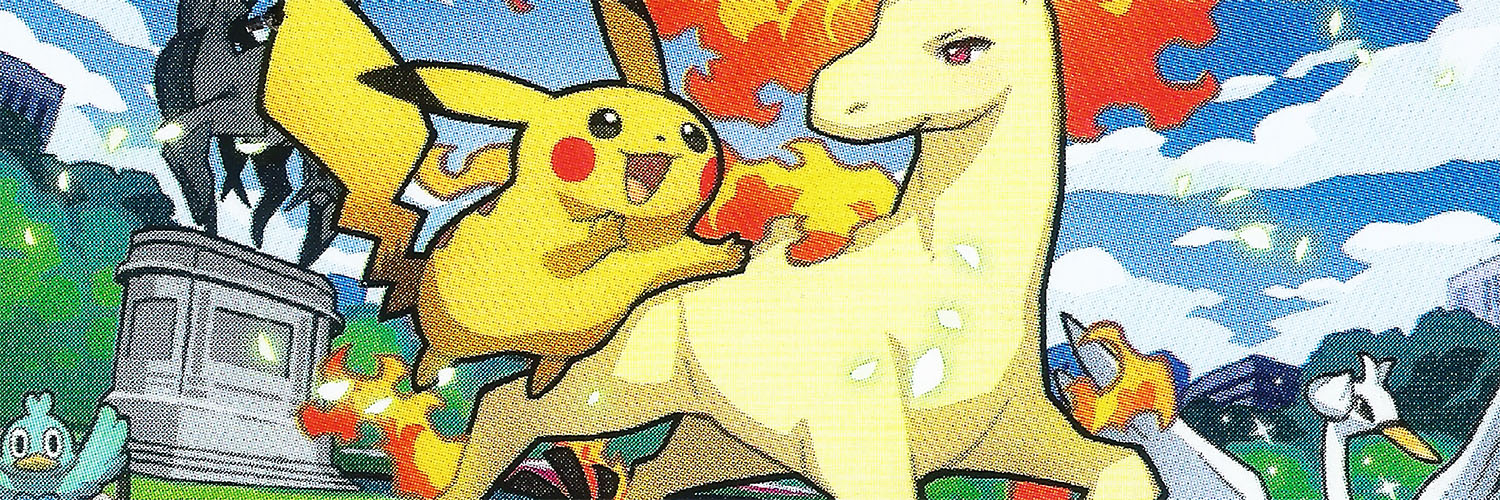This is a joint collaboration between Zach Lesage and Jay Lesage for double the reading pleasure! We were asked to do a special article as brothers and we loved the idea upon hearing it! We both have been playing for over a decade, with multiple successes across the span of our Pokemon career.
The first part of our article will be handled by Jay, discussing his thoughts going into the London International Championships and insight into some in-depth play styles that make him one of the game’s best players.
Table of Contents (Jay)
1) Boarding The Flight
2) Psychology
3) Outliers
• a) Playing Professor Sycamore
• b) Bleeding
• c) Playing Identical Card Arts
• d) Mulliganning
• e) Law School and Appeals
• f) Opponents and Distractions
• g) Gaming vs. Opposite Sex
• h) Mirrors
4) How to Up Your Game
• a) Microdecisions
• b) The Clock
5) Up, Up and Away!
Boarding the Flight
Hey, Cut or Tap readers! It hasn’t been too long since I last posted an article discussing Volcanion and its strength within the Standard format. Moving forward to December 9th, we’ll soon see Pokemon’s first Intercontinental Championships in none other than the great London, England. There has always been a great rivalry between North America and Europe, and this will be a true opportunity for both parties to show up the opposing continent; Worlds is a great way to do this, but now we’re on European turf where it’s a whole different ballgame. There are niche differences between the two continents, stemming mostly from external influences rubbing off from their idol players. This is displayed within a player’s play-style, deck choice, and deck-building abilities, thus drastically affecting the outcome of a tournament. Rather than give you an article on deck lists, I plan to instruct players new and old on how to hold their composure throughout the course of an event, as well as how to properly use psychology to win a game. There are several subtle differences within (and out of) Swiss rounds that will help you gain the upper hand on taking that glass trophy.
Psychology
The format includes several cards (such as N, Red Card, Delinquent, and Enhanced Hammer) that demonstrate psychology’s impact on game play.
Psychology in Pokemon refers to how you can use certain body movements and phrases to position an idea within your opponent’s mind. This can be demonstrated in many ways, and while it isn’t essential to win, it is something most top players will use from time to time. The key to psychology is making your actions as genuine as possible, while also being able to maintain a stable train of thought. I believe that N is the most misplayed card in the entire game, and being able to have a keen eye on your opponent will tell if you can capitalize on their dead draws. There have been several times during a tournament where I have had my opponent accidentally flash their hand to me, and I quickly notice that there are no relevant draw cards in their hand whatsoever. As opposed to playing the N, even in some situations when it’s risky, I’ll often opt to play Professor Sycamore.
Now likewise, it’s just as easy for your opponent to abuse the same psychological merit against you. Player A may potentially “fake” a dead hand in order to hold onto certain cards, or perhaps they may fake holding a “perfect” hand (while in reality their hand is trash) in order for their opponent to fret, corresponding with an N being played on Player B’s turn (and refreshing Player A’s hand in the process). The same principle can be applied to the use of cards like Red Card – you can usually gauge your opponent’s hand just by reading simple body language. Most opponents you face will be too focused on their own strategies to worry about psychology, and will fall to simple body reads.
Enhanced Hammer is another example of a card that heavily influences how we play the game. We play in a metagame that is embodied by Special Energies – mainly Double Colourless, Double Dragon, and Rainbow. Enhanced Hammer reinforces fear into the hearts of those players, but what if we could withhold the surprise for a little bit? Allow me to explain: in a Best-of-3 format, you’re going to be playing two to three games most of the time, and depending on the matchup, your first game might be an easy one. When you’re facing an extremely steep lead, you may want to consider concealing your Enhanced Hammer instead of playing it, in order to have a bigger surprise factor in the second game. By doing this, you drastically increase your chances of catching your opponent off guard, and pulling off an otherwise unforeseeable victory.
 Oops, it looks like you do not have access to some of the content on this page. Please log in below to gain access to this information. If you do not have an account, you can Sign Up for one here.
Oops, it looks like you do not have access to some of the content on this page. Please log in below to gain access to this information. If you do not have an account, you can Sign Up for one here.

